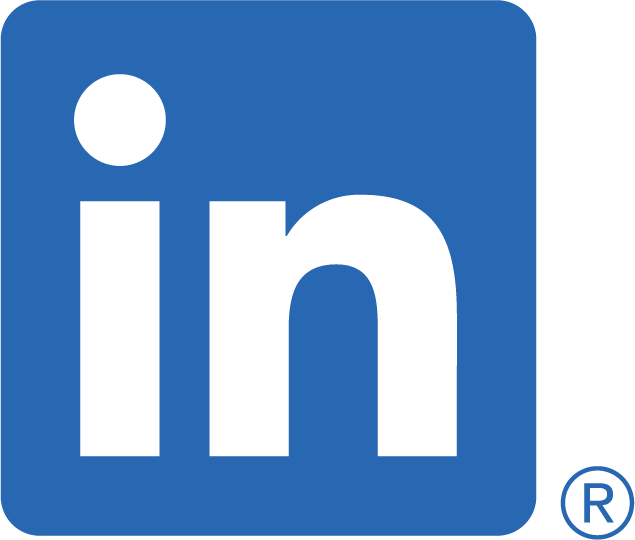|
Announcements & Department Events
Physics Department Colloquium
Nuclear Power (fusion and fission), Galactic Radiation, and Space Exploration
Thursday, September 29 | 12:00 PM | Orchard View Room, Discovery Building
Abstract: Special joint colloquium between
Physics, Engineering Physics, and Astronomy:
Nuclear Power is about to Transform our Presence in Space.
We are a decade into a revolution in our ability to access, explore, and use space. The cost of rockets and spacecraft and the time between
launches have dropped by orders of magnitude. Advanced technologies allow us to send probes into harsh environments like the atmosphere of the Sun, the frozen craters of the lunar poles and the icy moons of the outer planets. Our ambitions are limited by the
amount of energy we can carry into space, or more precisely the density of that energy. We need heat and electricity to operate on the moon at night or in permanently shadowed craters, and more efficient rockets to transport humans and cargo to Mars, and nuclear
power is the solution. A small fission reactor can continuously power a base on the moon or Mars for a decade, and nuclear propulsion is several times more efficient than chemical rockets, halving the duration of a crewed mission. This talk will review the
amazing work in nuclear technology and design under way right now to deploy nuclear power and propulsion in space.
Galactic HII Regions and Structure in the Milky Way
Speaker: Trey Wenger, NSF Astronomy & Astrophysics Postdoctoral Fellow
Abstract: Radio recombination lines (RRLs)
are an unobscured tracer of ionized gas in both the diffuse interstellar medium (ISM) as well as high-mass star forming regions. The Green Bank Telescope HII Region Discovery Survey (HRDS) and its successors have more than doubled the number of known high-mass
star forming regions in the Milky Way by detecting RRL emission toward infrared-identified HII region candidates. HII regions are the classic tracer of structure in galaxies, and their physical conditions (e.g., metallicity, internal kinematics) inform models
of high-mass star formation and Galactic chemodynamical evolution. I will give a brief overview of our latest HRDS project, the Southern HII Region Discovery Survey, and some preliminary results with the first Galaxy-wide flux-limited HII region sample, including
a novel technique to constrain Milky Way spiral structure. In the SHRDS, we serendipitously discovered a population of HII regions with ionized gas velocity gradients. I will discuss both the origin and implications of this discovery on models of high-mass
star formation as well the future of Galactic structure and HII region science (both Galactic and extragalactic) in the era of ALMA and ngVLA.
Physics Department Colloquium
Black Holes and Quantum Information
Friday, September 30 | 3:30 PM | 2103 Chamberlin Hall
Speaker: Tom Hartman, Cornell
Abstract: The black hole information paradox,
discovered by Hawking in 1976, is that black hole evaporation seems to violate quantum mechanics by creating too much entropy. I will describe the current status of this problem and discuss recent progress, including a new calculation of the entropy of Hawking
radiation that is compatible with unitary quantum mechanics. There are two key ingredients: a link between classical geometry and quantum entanglement, and higher topologies in quantum gravity known as replica wormholes. I will also discuss the prospects for
applying similar methods to cosmology in the early universe, which is similar in some ways to the inside of a black hole.
Gender Minorities and Women in Physics (GMaWiP)
Physics Graduate Student Council (PGSC)
The
American Physical Society (APS) has approved UW-Madison for an APS Chapter, which is a new program for graduate students and early career scientists (defined as having received their PhD within the past five years).
There are no fees or responsibilities required to be a member of the chapter and the chapter can request speakers from the APS and will receive a small grant every 6 months. In addition, chapter members who are also APS members may have the opportunity to
apply for certain travel grants. More information on the program can be found
here. For more information, contact
Luca Riitano.
|
|
|
|
|
|
|
|
Important Dates
November 7: Spring 2023 enrollment appointment
times assigned
November 14:
Spring 2023 enrollment begins
November 24:
Deadline for graduate students to change variable credits, request pass/fail or credit/audit
November 25:
Deadline for students to drop/add a fall term course (after: need academic dean approval)
December 14:
Deadline for students to withdraw from fall term courses
December 14: Last day of instructions
for Fall 2022 term
December 25:
Fall 2022 Grades Post
January 24: Spring 2023 Instruction
Begins
|
|
|
|
|
|
Professional Development
Fellowship Application Writing Workshop
Wednesday, Sept 28 | 10 - 11:30 am
Online
Register
HERE.
How Graduate Students Can Build a Personal Brand: Standing Out in a Crowded Job Market
Thursday, September 29, 10:00─11:15am
In this workshop, you will develop a personal brand and learn how it can be leveraged to showcase your strengths and build relationships,
for job searching in academia, government, business, or the non-profit world.
Register here:
https://docs.google.com/forms/d/1wq8sxJgz6cfMq9ynJrQ06ZToqvSfvjUeGNs77nQLLa8/viewform?edit_requested=true
You're
Researching What? Crafting a 3-Minute Research Talk that Appeals to the Public
Thursday,
Oct 6 | 4 - 5:15 pm
Online
| Disciplinary Expertise and Interdisciplinary Connections | Communication
Communicating
your research to a non-specialist audience is an essential career skill, whether you’re preparing for job interviews, networking at a conference, or just trying to explain to family and friends what you do with your time. This online workshop, sponsored by
the Writing Center and the Graduate School Office of Professional Development, will help graduate students from all disciplines to prepare an accessible, intriguing three-minute talk about their research. If you’re interested in learning how to craft a concise,
general explanation of your research, or if you plan to participate in the Three Minute Thesis® (3MT®) competition, this workshop is for you.
Register
HERE.
Student Job Opportunities (On Campus)--hourly and assistantship positions listed
https://studentjobs.wisc.edu/
|
|
|
|
|
|
Employment and Funding Opportunities
Quibit x Quibit is Hiring Quantum Teaching Assistants!
Qubit by Qubit (QxQ) is a nonprofit organization
dedicated to training the future diverse quantum workforce. We are pioneering innovative programs for students in middle school through college with the goal of making
quantum computing accessible to students around the world, particularly students historically underrepresented in STEM.
We are looking for Teaching Assistants (TAs)
who will support our Summer 2022 and Academic Year 2022-2023 programs. TAs are an integral part of all of our educational programs. They lead lab sections - guiding students
through quantum coding exercises and reviewing concepts introduced in lecture - and support other teaching and curriculum development needs. TAs are often asked to participate in special events to talk with students about their personal experiences in college
and graduate school. As an organization that serves a diverse group of students, we are strongly focused on ensuring our instructional team reflects the diversity of our students.
Working with QxQ, TAs will refine their
own quantum computing skills, get the chance to work with leaders in quantum education, and make a lasting impact on students around the world.
This role is entirely remote.
TAs will be paid a stipend commensurate with experience and based on the amount of time they work weekly. For all programs, TAs will be required to participate in training
on the curriculum and teaching best practices.
Interested applicants can apply here:
Careers in Physics, APS Physics
Visit the APS Physics website to explore Physics jobs and to find resources for job seekers.
Check out available listings of employment opportunities at QED-C members companies. Members include corporations, academic institutions,
national laboratories and government agencies working in quantum.
VIsit the Qunasys website to explore job postings in Quantum Computing:
|
|
|
|
|
|
Graduate Student Resources
Graduate Student Support and Assistance
The Dean of Students Office provides resources to students struggling with a variety of issues and can be your go-to spot for assistance
as a graduate student. To contact the Graduate and Professional Student Assistance Specialist Elaine Goetz-Berman directly, email egoetz2@wisc.edu
University Health Services (UHS)
·
UHS
24-hour Crisis Services. On-call crisis counselors can help address your most pressing concerns, address your safety, and help you connect with follow-up service needs. It’s available every day, including weekends, holidays, and semester breaks. Call the UHS
crisis line at 608-265-5600. For situations that are immediately life-threatening, call 911.
https://www.uhs.wisc.edu/mental-health/24-hour-crisis-services/
·
SilverCloud.
This online, self-guided resource provides treatment options 24 hours a day through evidence-based modules on anxiety, depression, body image, and stress. SilverCloud is designed to help students manage day-to-day stresses and improve resilience. https://www.uhs.wisc.edu/mental-health/silvercloud/
·
YOU@WISC.
This portal has tools and information to help you be well, with modules on stress management, self-care, social support, suicidal thoughts, mindfulness, academic wellness, and more. https://www.uhs.wisc.edu/mental-health/you/
Multicultural Graduate Student Support
The Office of Diversity, inclusion, and Funding is a great resource for UW-Madison graduate students for social networking, learning, and
professional development opportunities.
The University of Wisconsin–Madison is committed to preventing hostile and intimidating behavior (HIB) and will take prompt and appropriate
corrective action whenever it learns that it has occurred. If you have experienced HIB, there are resources to help and staff
available to talk (ervin.cox@wisc.edu).
Graduate School Fellowships Page
This page offers important information on available sources of fellowship funding for graduate students and direct links to places like
the Wisconsin Scholarship Hub, FastWeb, and more.
|
|
|
|
|
|
|
|
|
|
|
Connect with us!



Department
of Physics
1150 University Avenue, Madison, WI 53706
This newsletter is for MSPQC students at UW–Madison; we update the mailing list at the start of each semester. Please contact
Elizabeth Baldridge with any questions.
|
|
|
|
|